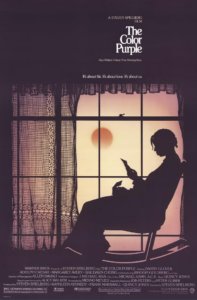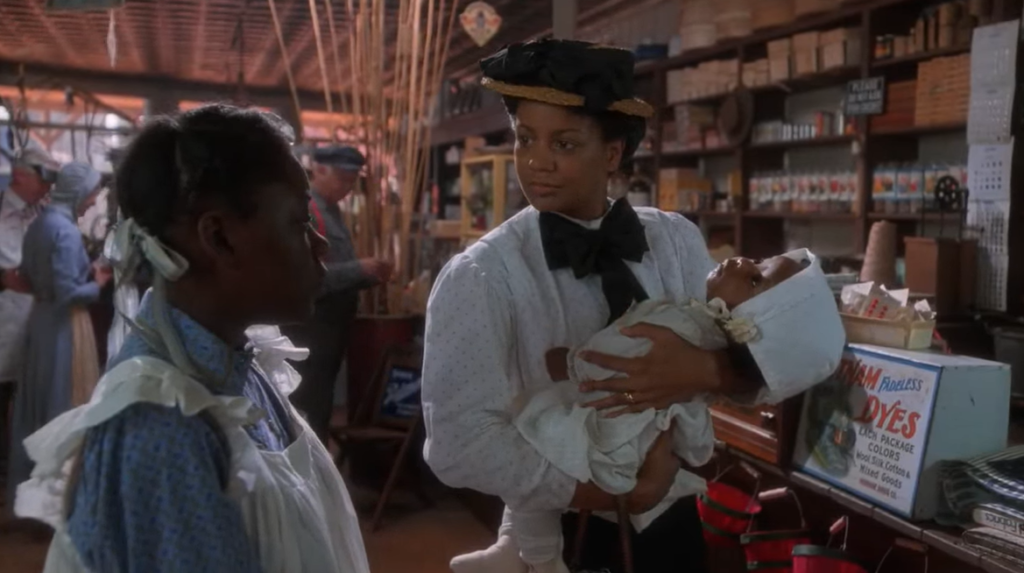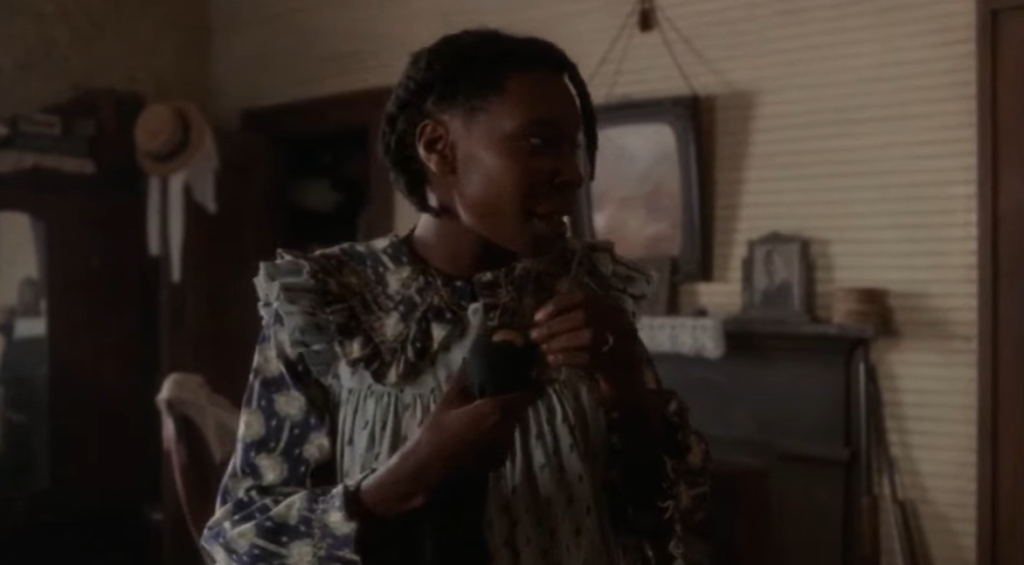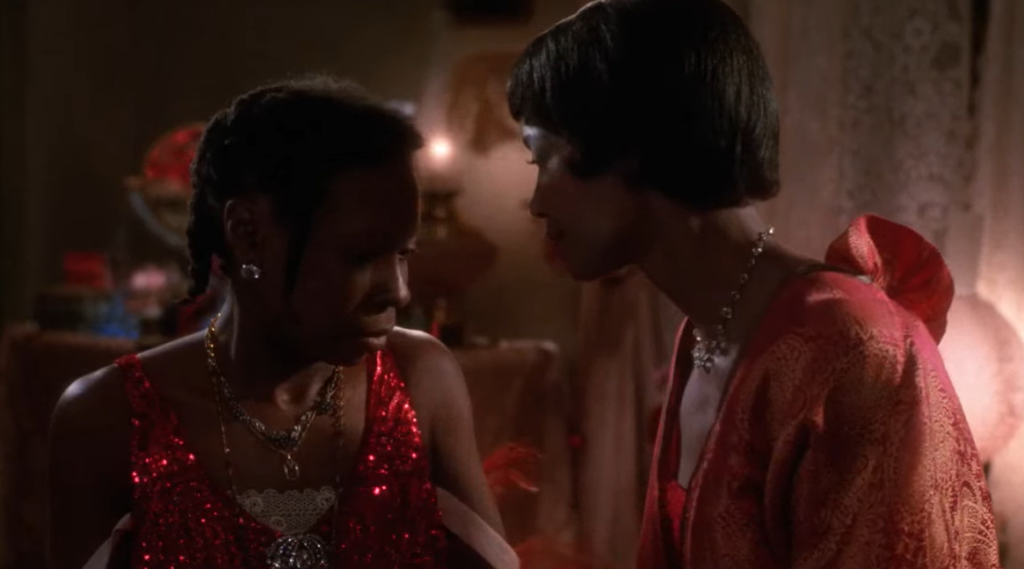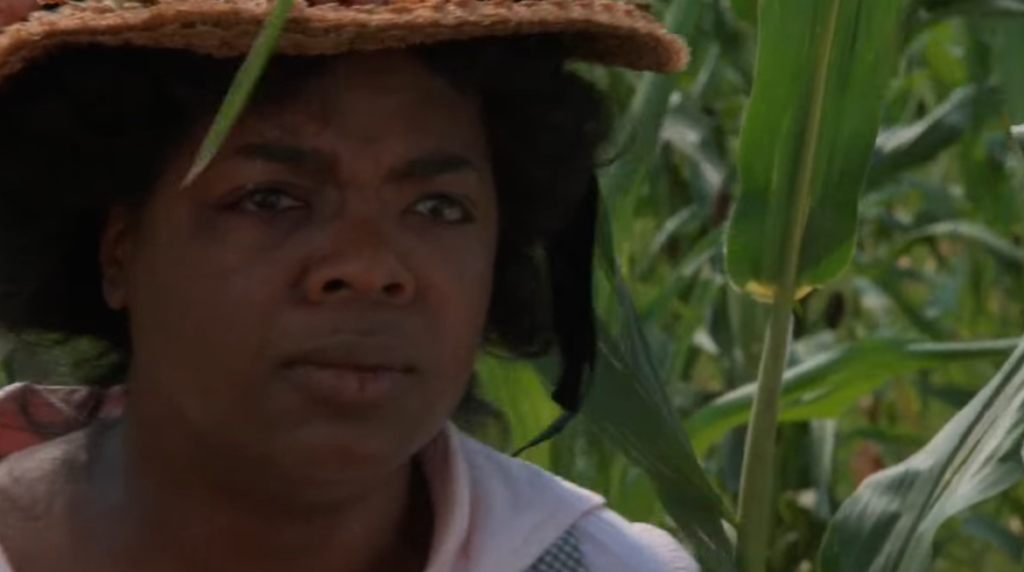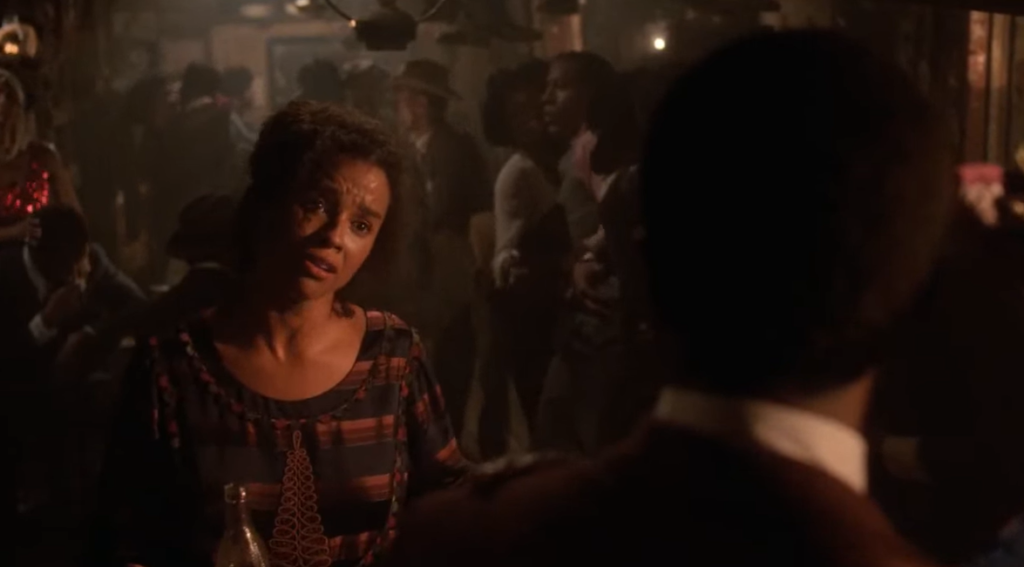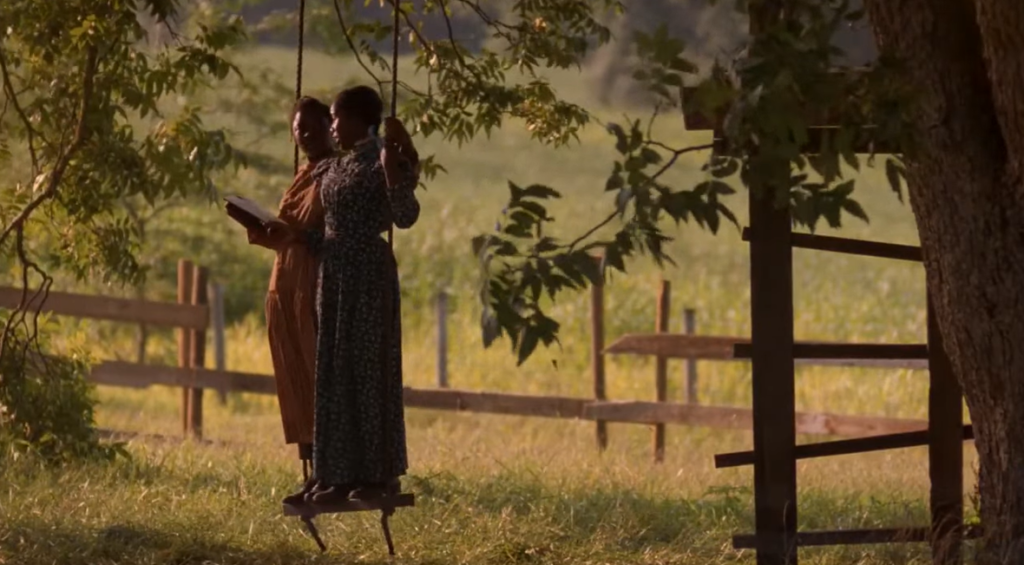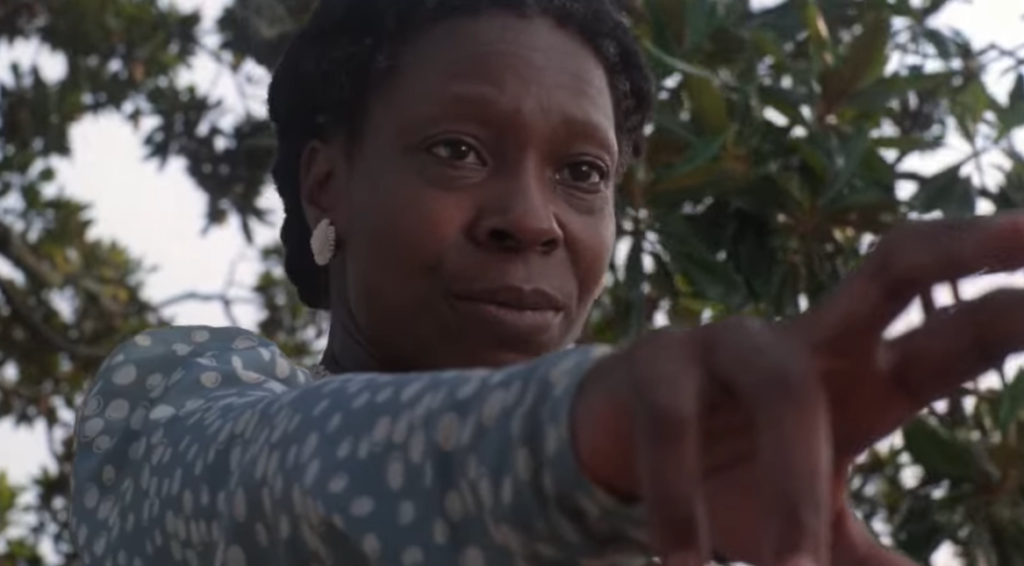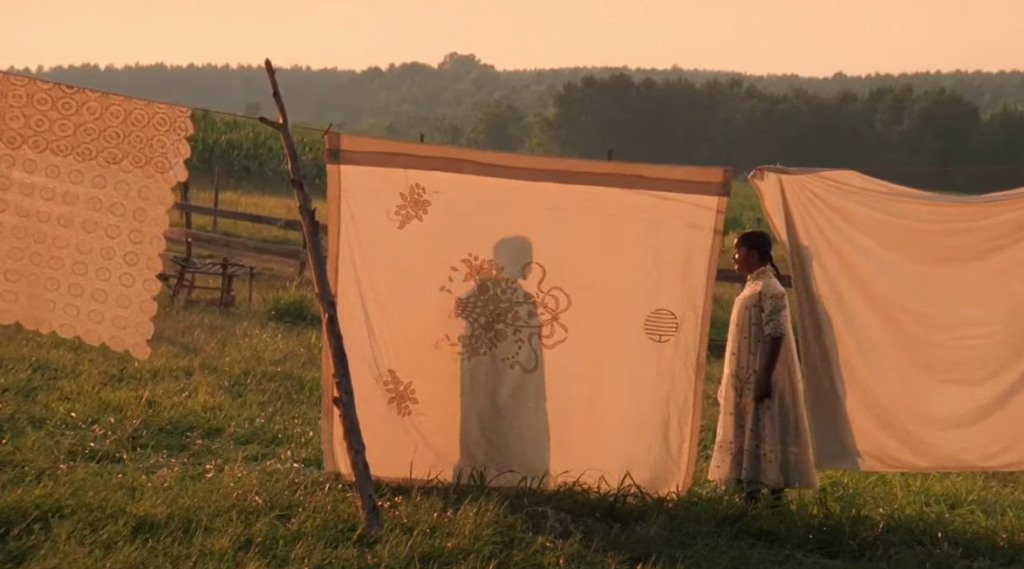Color Purple, The (1985)
“I don’t know how to fight; all I know how to do is stay alive.”
|
Synopsis: |
|
Genres, Themes, Actors, and Directors:
Response to Peary’s Review: … “to unappreciated, exploited, sexually and physically abused wife (Whoopi Goldberg).” He argues that Spielberg and Meyjes “substitute [in] a fairytale world that is shot through rose-colored lenses, where Celie’s problems with [her] husband… are no worse and no more realistic than Cinderella’s when living with wicked stepsisters” while also choosing “to downplay such controversial themes as rape, incest, racism, and most significantly, lesbianism.” He writes that “the book’s feminist theme — [that] Celie’s personal growth, self-respect, and rare moments of happiness are the result of being with strong women like Shug and her foolish stepson’s battling wife, Sofia ([Oscar-nominated] Oprah Winfrey) and reading the letters from her sister in Africa — is almost completely diluted.” Peary points out that while the “picture has many big scenes from the book,” “they’ve been taken out of context so that we can’t see their thematic relevance.” For instance, “we don’t see that Sofia is gotten out of jail by her former romantic rival, Squeak (Rae Dawn Chong), so we are deprived of the significant black-female-bond theme that makes the whole sequence involving Sofia important.” It’s been so long since I read The Color Purple that I can’t recall details of all these subplots — meaning I must judge the film on its own merits. To that end, I agree with DVD Savant’s assertion that:
Indeed, this is an overly pretty, glowing film about some of life’s most challenging topics — but to its credit, it ultimately shows that women can (and will) prevail even in the face of seemingly unbearable insults. Goldberg’s fine breakthrough performance makes this film worth a look, though I ultimately don’t consider it must-see viewing — and I’m not particularly looking forward to the remake, either; I’d rather re-read the book one day. Notable Performances, Qualities, and Moments: Must See? (Listed in 1001 Movies You Must See Before You Die) Links: |
